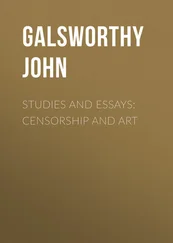Mina Loy - Stories and Essays of Mina Loy
Здесь есть возможность читать онлайн «Mina Loy - Stories and Essays of Mina Loy» весь текст электронной книги совершенно бесплатно (целиком полную версию без сокращений). В некоторых случаях можно слушать аудио, скачать через торрент в формате fb2 и присутствует краткое содержание. Год выпуска: 2011, Издательство: Dalkey Archive Press, Жанр: Современная проза, на английском языке. Описание произведения, (предисловие) а так же отзывы посетителей доступны на портале библиотеки ЛибКат.
- Название:Stories and Essays of Mina Loy
- Автор:
- Издательство:Dalkey Archive Press
- Жанр:
- Год:2011
- ISBN:нет данных
- Рейтинг книги:3 / 5. Голосов: 1
-
Избранное:Добавить в избранное
- Отзывы:
-
Ваша оценка:
- 60
- 1
- 2
- 3
- 4
- 5
Stories and Essays of Mina Loy: краткое содержание, описание и аннотация
Предлагаем к чтению аннотацию, описание, краткое содержание или предисловие (зависит от того, что написал сам автор книги «Stories and Essays of Mina Loy»). Если вы не нашли необходимую информацию о книге — напишите в комментариях, мы постараемся отыскать её.
Stories and Essays of Mina Loy
Stories and Essays of Mina Loy — читать онлайн бесплатно полную книгу (весь текст) целиком
Ниже представлен текст книги, разбитый по страницам. Система сохранения места последней прочитанной страницы, позволяет с удобством читать онлайн бесплатно книгу «Stories and Essays of Mina Loy», без необходимости каждый раз заново искать на чём Вы остановились. Поставьте закладку, и сможете в любой момент перейти на страницу, на которой закончили чтение.
Интервал:
Закладка:
Mrs. Bundy was appointed by the trustees to sign the cheques; she felt herself at last to have achieved what was due to her and rattled her keys.
+
Mrs. Bundy wrote very indignantly to Daniel on the departure of the seventh male nurse, the one who Daniel had known. He had endeavoured to protect his patient, already overexcited by the drugs prescribed for rotten patches, from the still more exciting persuasiveness of his wife— The poor half imbecile face sunk in the powerless shoulders became almost sane with apprehension at her approach.
And stripped by the expert insults of Mrs. Bundy’s attack which forced all her adversaries to retreat for protection to their final justification — the truth — had enforced his diagnosis of the patient’s necessity for peace with a report of her son’s corroboration.
I — driven him — driven him indeed she wrote.
Daniel did not deny it. Her next communication was incredible — a cheque for £ 50.
Daniel realised that her consciousness, unfathomable calms of her conscience, had not been ruffled. She was buying an indulgence.
+
Daniel stayed with filial superstition to watch the clockwork run down. Mr. Bundy with two male nurses expounded at such times when he was not “worse” the marvellous intricacies of the simplest processes of the human mechanism, when he tried to use a fork.
When he was restless, he seemed always to be being led away from something by the two male nurses — all over the house. Once Daniel saw them shoving him hurriedly past his daughter, but all he heard was a mumbled
“She does, why shouldn’t I?”
And yet Mr. Bundy had always shown a very marked horror of bad women—
The patient knew nobody present but was extremely occupied with the absent and he preferred to retire to those early years when things had not been wearing on him for so long—
When he was worse he would scream terribly, once at Daniel smoking at a top window, “You are catching on fire! You are catching on fire!”
He had been so anxious when Daniel was a boy that he should not begin smoking.
It was when he perceived anything actual, as in this case, a glowing at some distance, that his delirium became momentarily frantic. The sudden cognition of anything that was really there tortured him; within his world of fitful and reflex reactions he was only fidgety and ill at ease.
Daniel in his filial superstition sat hours upon the bench at the end of the garden under a row of aspen poplars that Mr. Bundy had planted as saplings in the early years of his misery — and had now grown very tall to rattle their eaves.
Mr. Bundy next to him, the “male” nurse on the other side.
Mr. Bundy and Daniel had been the members of the family who when addressed upon a particular subject had not retorted with a hot remark upon another subject. Conversation between husband and wife was like a game of tennis in which the husband served the ball gallantly to his wife — the wife retaliating with a lump of coal or a potato. Eventually as each ball had rolled away the balls became exhausted. And if it may take this imaginary game of tennis to symbolise a discussion of the children’s schooling, the disposition of an income — the preparation for the holiday — we can understand that the Bundy family was a disordered one.
+
Daniel had developed that delicate feminine intuition of poets and often of men who have had mothers like Mrs. Bundy. In them nature seems to attempt to substitute the mother they should have had “outside” them with a mother inside.
He had acquired a vision of those signs and portents that men so often miss.
He felt as he sat by his father not that he was changed, not that he was absent, but that the centre of him had slipped inwards inwards and was buried under constantly dissolving currents of semi-lucid mud.
He had lost the thread of his life’s discourse.
Daniel who could remember his father’s repetitive reminiscences as he could remember the sky and the streets found that by pouncing on a remark — for his grandmother had been a South American woo’ed as a palliative on a business journey by his grandfather — while Mr. Bundy still smacked his lips — and answering it before the remark had dwindled into an anxiety as to the daughter’s matrimonial prospects — she had now been married five years in spite of the mother’s opposition — that he could keep up a racing, hurdle-leaping intercourse, for if the father intimated some story in his memory, the son could answer as if the complete narrative had been explored.
Gradually the eyes of Mr. Bundy assumed a partial peace. Sometimes they almost twinkled with the well-being of men sitting round the café table.
The more surprised to find himself answered, the more loquacious he became. The conversation became more connected — the frantic nightmares much more rare. He held his son’s hand, and sometimes looked up peacefully at the trees.
And Daniel understood, that all his life — this man had had no one to speak to. He leant over and kissed him, and this man who Daniel had been told no longer knew anything about anything put his arms about him in terrible supplication and wept.
“Its extra-hordinary,” said the male nurse, “the way ’e’s pulled ’imself together since you been with ’im.”
“Do you believe,” asked Daniel — that anybody could be ‘nagged’ mad?”
“Do I berlieve—” answered the man volubly, as if he too had found a long-awaited audience— “Why — she can’t let him alone even now—
“It sounds as if she were always ’opeing for a lucid moment in case she ’adn’t really convinced ’im — as ’e’s the bigger fool than ’er—
“Argue, argue, argue — and lookin’ as though she feels ’er advantage—’im not being able to answer back any more—
“She’ll come down in the morning so dignified and all — given’ ’im that narsty look — ”
“Yet the specialist says his brain—”
“These ’ere specialists — they come in and ’ave a look around for ’arf a hour. Chock full of theories about some man as doesn’t exist—
“They can’t know nothing about people wot really ’ave to be alive. For these sort o’ cases you’d a got to live in the family same as we do — we’re the ones as finds out what’s the matter.
“That’s it. Nagged mad — and,” he said significantly— “ ’e ain’t the only one — there’s hundreds of ’em. You wouldn’t believe — why even in yer own neighbourhood,” sweeping his hands conclusively towards the narrow green gardens bumping their behinds into each other with their pantry windows and tradesmen’s entrances steady as blind eyes—
“It’s these ’ere little brick ’ouses — regular conservatory I’d say—
“You take it from me, your father ain’t no more going to lie like a log — than I am.
“’E’s going to get better— More’s the pity for ’im.”
“But the specialist said his brain was rotten in—”
“You bet, they want to be so nice — got into serciety they have, they ’ave to prasoom that these ’ere married men wot shrieks at nothing at all, ’as been sitting all their lives in a angel’s lap, while they just ’appened to rot away.”
INCIDENT
A ridiculous little accident that happened to me just after World War I, while crossing the Place de la Federation, was the cause of a most significant experience.
I was hurrying to a tea-party with a friend. We were walking very quickly; arguing humorously, when, laughing, I nodded my head with what turned out to be exaggerated emphasis, which, as I was to realise later, dislocated my cranium from the spinal column.
Читать дальшеИнтервал:
Закладка:
Похожие книги на «Stories and Essays of Mina Loy»
Представляем Вашему вниманию похожие книги на «Stories and Essays of Mina Loy» списком для выбора. Мы отобрали схожую по названию и смыслу литературу в надежде предоставить читателям больше вариантов отыскать новые, интересные, ещё непрочитанные произведения.
Обсуждение, отзывы о книге «Stories and Essays of Mina Loy» и просто собственные мнения читателей. Оставьте ваши комментарии, напишите, что Вы думаете о произведении, его смысле или главных героях. Укажите что конкретно понравилось, а что нет, и почему Вы так считаете.












